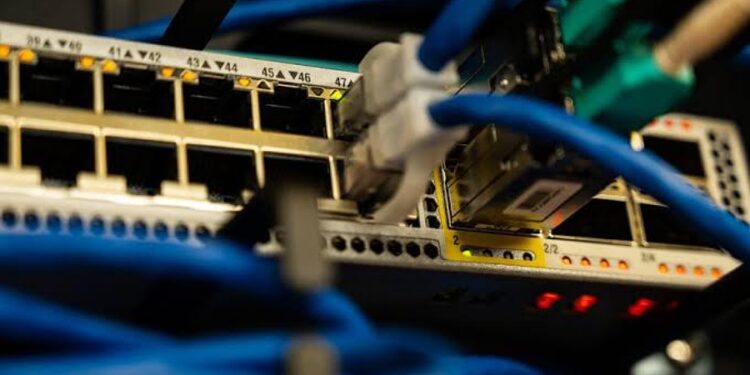Top Internet Service Providers (ISPs) in Nigeria, including Starlink and Spectranet, have recorded a significant drop in their customer numbers as Nigerians cut spending on internet services.
According to the latest ISP data released by the Nigerian Communications Commission (NCC), total active customers across 127 ISPs, whose data were made available, dropped to 289,369 as of Q1 2025 from 307,946 recorded in Q3 2024.
Specifically, Starlink, which jumped to become the second-largest ISP in Nigeria last year, recorded its first loss as its customer base plunged from 65,564 in Q3 2024 to 59,509 in Q1 2025, showing that over 6,000 users had ditched their subscriptions within the period.

In the same vein, Spectranet, one of the oldest ISPs in Nigeria and the largest in terms of customer numbers, also recorded a decline in subscribers.
According to the NCC’s data, Spectranet’s active customers declined by 2,189 from 105,441 in Q3 2024 to 103,252 in Q1 2025.
The third-largest ISP by customer number, FibreOne, saw the largest decline in active customers as its database plunged from 33,010 in Q3 2024 to 19,000 in Q1 2025, losing over 14,000 customers.
Why ISPs’ customers are declining
Industry analysts, who spoke to Nairametrics, have attributed the decline in the number of ISP customers to several factors, key among which is cost.
According to an Innovation and Technology policy Advisor and the Founder of Jidaw.com, Mr. Jide Awe, the ISPs are also feeling the impacts of the economic realities in Nigeria, which have forced Nigerians to cut costs.
Speaking with Nairametrics, the President of the Association of Telecommunications Companies of Nigeria (ATCON), Mr. Tony Emoekpere, said the recent moves by mobile network operators into Fiber to the Home (FTTH) service, the terrain where only core ISPs had been playing, is a factor.
“I don’t think this is fair to the smaller operators (the ISPS),” the ATCON President stated.
Emoekpere added that the decline could also be attributed to the tariff hike implemented in February by all the operators. He, however, noted that there is still a disparity between the prices of MNOs and ISPs.
- For Kelvin Ayodele, a small business owner in Lagos, the price increment was the reason he stopped subscribing to his Starlink for two months now.
- He now subscribes to the broadband service of one of the mobile network operators, which he says is cheaper and delivers the same value he was getting from Starlink.
With the approval of NCC, all telecom operators in Nigeria implemented a 50% increase in voice and data tariffs starting February this year.
- Starlink also jerked up its monthly subscription price from N38,000 to N57,000 but started implementation in April.



